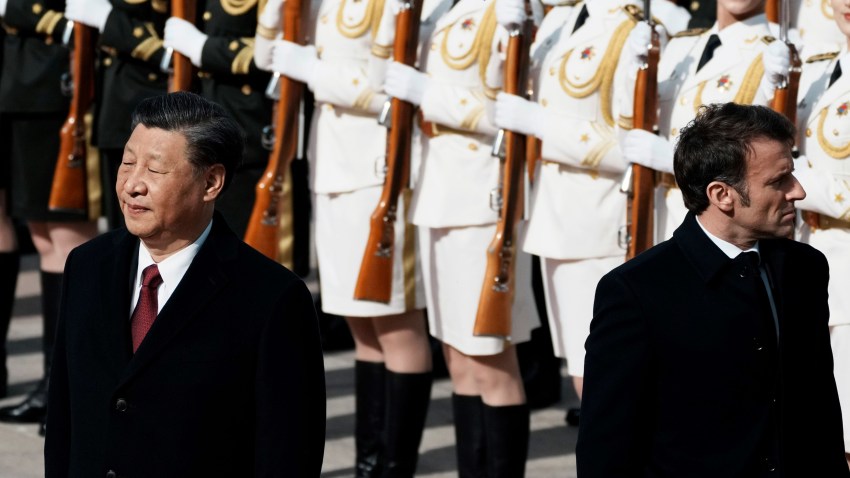BEIJING—Last week, French President Emmanuel Macron embarked on a three-day state visit to China. At the top of Macron’s agenda in China were the war in Ukraine; bilateral trade between France and China; cultural and scientific cooperation; and Europe’s relationship with Beijing.
Macron was joined on his visit to China by more than 50 French business leaders, and France and China signed 20 deals ranging from agriculture to aviation. Paris seeks to shrink its trade deficit with Beijing, which stood at approximately 40 billion euros in 2021. Similarly, China seeks to diversify its economic partners amid a slowdown of its economy and growing fear of U.S. sanctions. Last year, Washington issued new regulations restricting the sale of semiconductors and cutting-edge chip-making equipment to China, and suggested that it would intensify its efforts to crack down on other areas of China’s technology sector with more export-control measures. As a reminder of Europe’s economic might, Macron was also joined for part of his three-day visit by European Union Commission President Ursula von der Leyen in what was intended to be a show of European solidarity.
However, their joint appearance in China also illustrated some of the divisions inside the EU regarding the bloc’s relations with China. In a speech delivered before the visit to China, von der Leyen took a decidedly more hawkish position regarding the union’s relationship with Beijing. But notwithstanding the differences in their approach to public communication, Paris and Brussels share a common goal of “de-risking, not decoupling” Europe’s ties with China. During remarks she delivered at a press conference at the end of the visit, von der Leyen emphasized the importance of the concept, saying that it was “necessary” while acknowledging that “there are many goods and services in trade that are un-risky.” Essentially, the EU’s objective is to avoid putting all its commercial eggs in the Chinese basket when it comes to strategic industries such as telecommunications and advanced technology, while retaining and even expanding trade ties in other ones.

